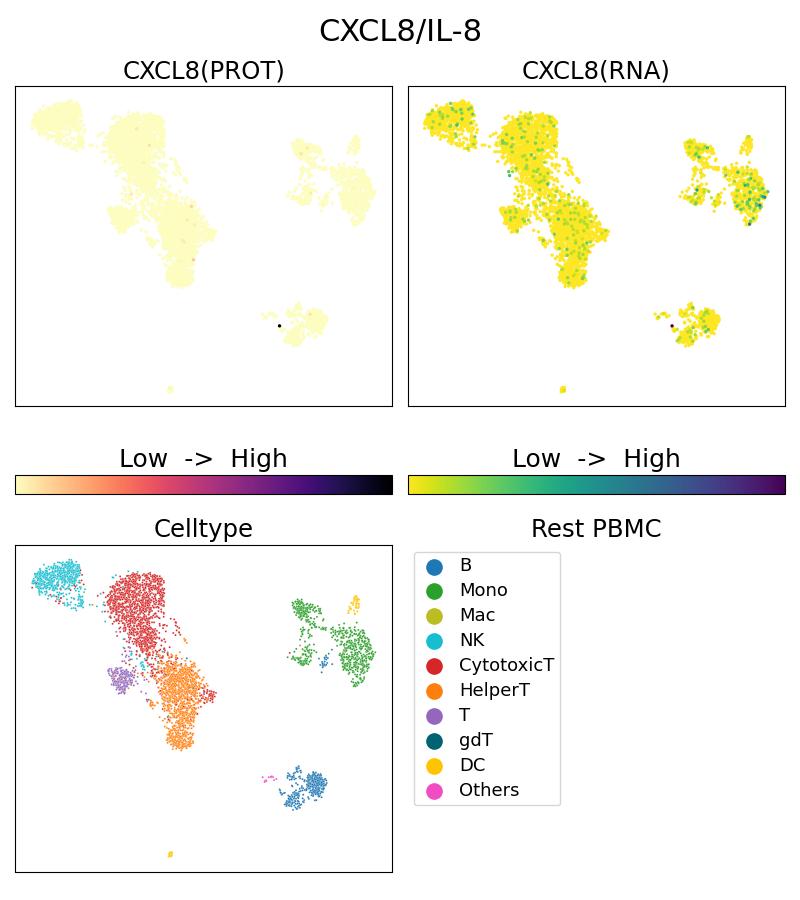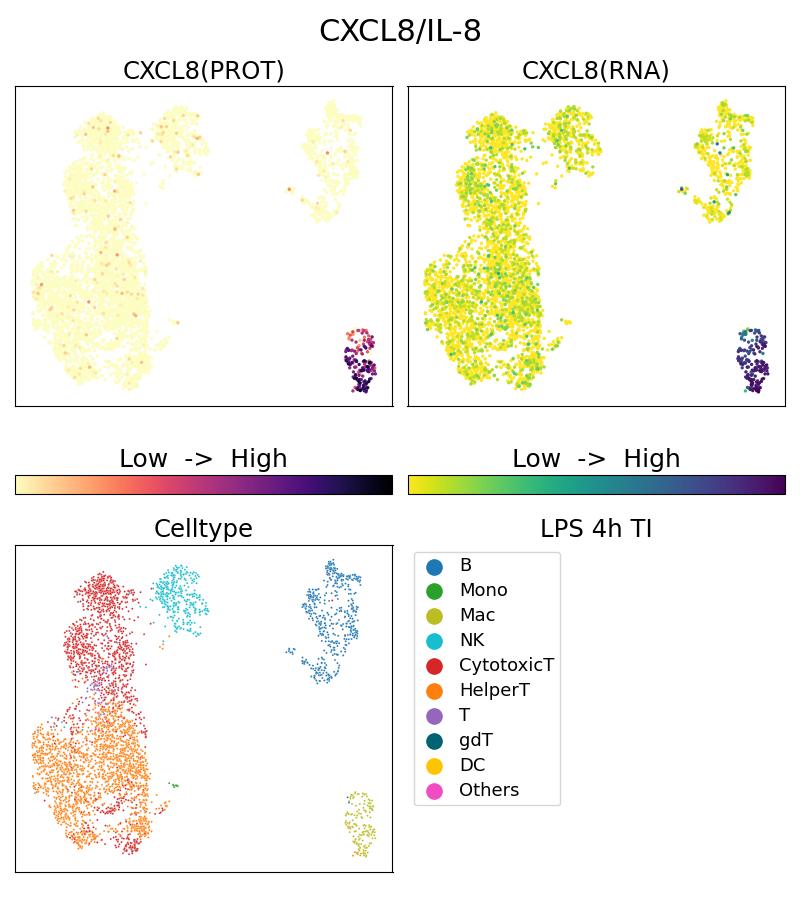CXCL8/IL-8 Polyklonaler Antikörper
CXCL8/IL-8 Polyklonal Antikörper für Single Cell (Intra)
Wirt / Isotyp
Kaninchen / IgG
Getestete Reaktivität
human
Anwendung
Single Cell (Intra)
Konjugation
5CFLX Fluorescent Dye
Kat-Nr. : G17038-1-5C
Synonyme
Geprüfte Anwendungen
| Erfolgreiche Detektion in Single Cell (Intra) | 10x Genomics Gene Expression Flex with Feature Barcodes and Multiplexing product |
Empfohlene Verdünnung
| Anwendung | Verdünnung |
|---|---|
| SINGLE CELL (INTRA) | SINGLE CELL (INTRA) : <0.5ug/test |
| It is recommended that this reagent should be titrated in each testing system to obtain optimal results. | |
| Sample-dependent, check data in validation data gallery | |
Produktinformation
G17038-1-5C bindet in Single Cell (Intra) CXCL8/IL-8 und zeigt Reaktivität mit human
| Getestete Reaktivität | human |
| Wirt / Isotyp | Kaninchen / IgG |
| Klonalität | Polyklonal |
| Typ | Antikörper |
| Immunogen | CXCL8/IL-8 fusion protein Ag10552 |
| Vollständiger Name | interleukin 8 |
| Berechnetes Molekulargewicht | 99 aa, 11 kDa |
| GenBank-Zugangsnummer | BC013615 |
| Gene symbol | IL-8 |
| Gene ID (NCBI) | 3576 |
| Konjugation | 5CFLX Fluorescent Dye |
| Form | Liquid |
| Reinigungsmethode | |
| Lagerungspuffer | PBS with 1mM EDTA and 0.09% sodium azide |
| Lagerungsbedingungen | 2-8°C Stable for one year after shipment. 20ul Größen enthalten 0,1% BSA. |
Hintergrundinformationen
Interleukin 8 (IL-8), also known as CXCL8, which is a member of the CXC chemokine family. This chemokine is secreted by a variety of cell types including monocyte/macrophages, T cells, neutrophils, fibroblasts, endothelial cells, and various tumor cell lines in response to inflammatory stimuli. IL-8 has two primary functions. It induces chemotaxis in target cells, primarily neutrophils but also other granulocytes, causing them to migrate toward the site of infection. IL-8 also induces phagocytosis once they have arrived. This gene is believed to play a role in the pathogenesis of bronchiolitis, a common respiratory tract disease caused by viral infection. IL-8 is also known to be a potent promoter of angiogenesis. IL-8 has been associated with tumor angiogenesis, metastasis, and poor prognosis in breast cancer. IL-8 may present a novel therapeutic target for estrogen driven breast carcinogenesis and tumor progression.



